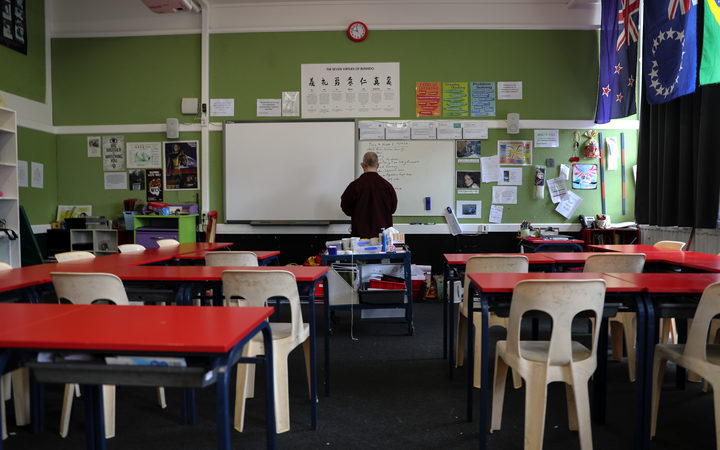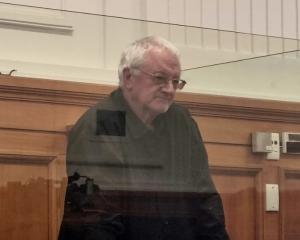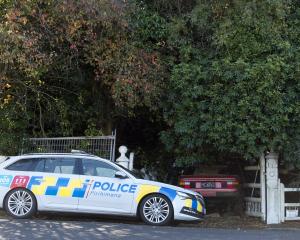
The incidents included 35 instances of striking, more than 15 cases of punching and 15 of using an object as a weapon.
In 45 cases teachers reported being sworn at, and in more than 25 cases they were called names.
The survey said 141 teachers reported they were the subject of one incident of aggression in a single week, but 32 reported two or more incidents in a week, 11 reported three or more and three said they were subjected to four attacks.
Fourteen of the schools were primary or intermediate schools, one was a secondary school.
Teachers described situations including "threatening to throw a metal cabinet at me", "sworn at, finger gestured, verbal abuse", "slapping/pushing my arm away when extended my hand out to guide him up and out the class".
President of the Otago Primary Principals' Association Shelley Wilde said it organised the survey because it wanted to find out how prevalent violence was in their schools.
She said the results confirmed principals' beliefs that they and their teachers were on the receiving end of a lot of verbal and physical attacks.
"The full range of incidents were happening. Definitely swearing, definitely threats, actually throwing objects at people, being kicked, bit, hit, spat at," she said.
"What we've got to remember is these children are operating in the emotional part of their brain. They're not actually thinking logically, so they're just really in that fight or flight or fright mode."
She said there was a variety of factors behind the children's behaviour.
"For example if they become disappointed about something or are risk averse, or if they've come to school hungry or they've had a bad start to the day or if some people are coming in and out of their lives, they're more prone to not being able to manage themselves positively in the school day."
Wilde said schools used counselling services and behaviour strategies to try to help children.
Teachers told the survey most incidents caused them only minor discomfort, but in a few cases they expected it would affect them for a week or more.
Perry Rush from the Principals' Federation said Otago was not a special case and the same results could be found anywhere in the country.
"This problem is number one," he said.
"In every region there are principals standing in meetings saying 'where is the help, where is it, it is absolutely vital'."
Rush said it was not okay for teachers to be hurt in their own workplace.
Last month, a national survey of primary teachers and principals found a significant increase in violence in schools.
Twenty-four percent of teachers told the Council for Educational Research they had felt unsafe in their classroom in 2019, up from 12 percent at the previous survey three years earlier.
The NZCER survey also found 25 percent of teachers often experienced serious disruption from children in their classroom, up from 17 percent in 2016, most teachers (77 percent) dealt with at least one incident of extreme behaviour last year, and most (69 percent) wanted more help to manage such behaviour.
It said teachers in lower decile schools were more likely to experience disruption, but there were no decile-based differences for feeling unsafe.












